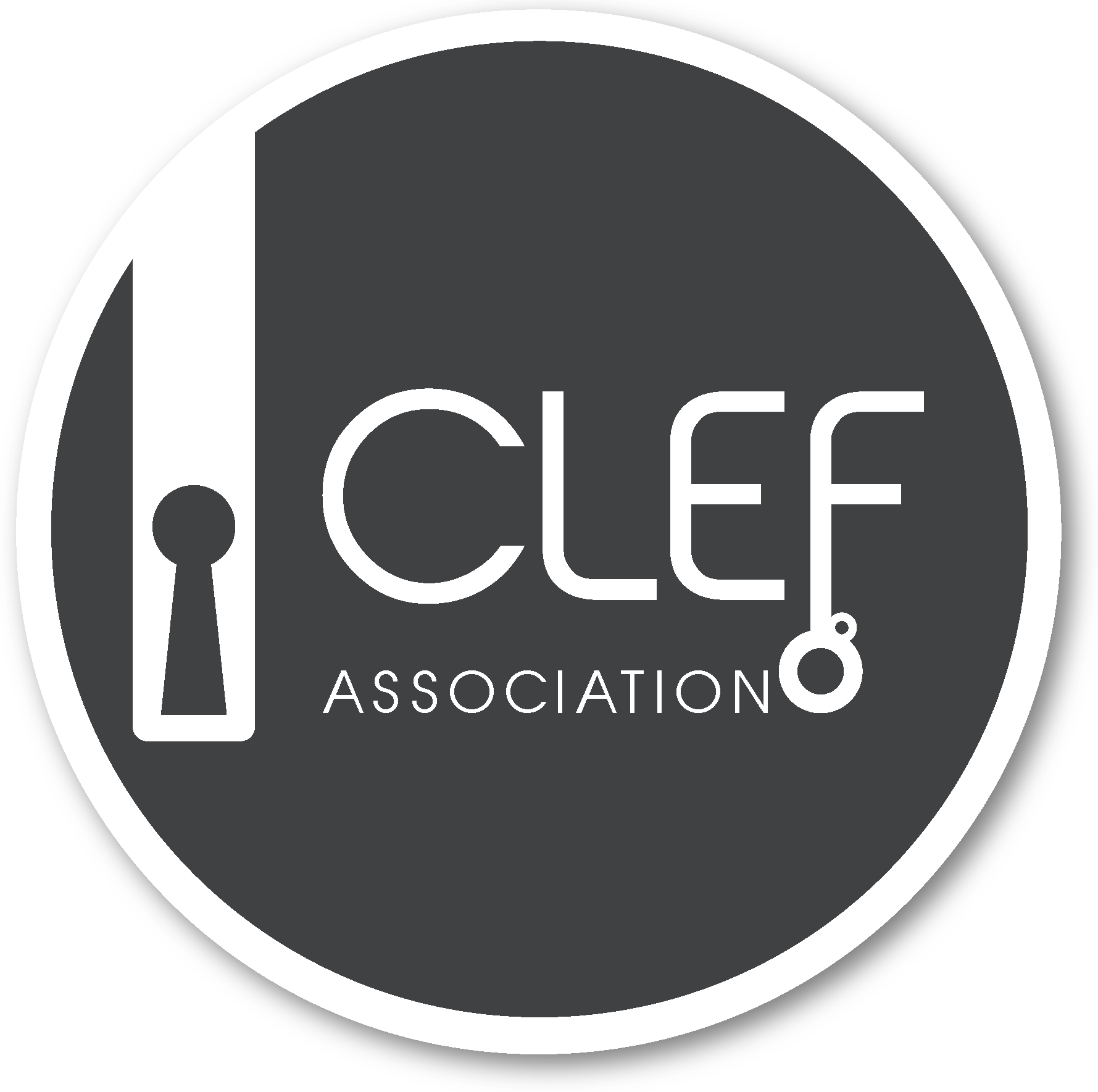| September 15 |
|
10:30-12:30
|
Conference papers: Session 1 |
| 15 min. talk |
Supporting More-Like-This Information Needs: Finding Similar Web Content in Different
Scenarios
Matthias Hagen and Christiane Glimm |
| 12:30-13:30 |
Lunch |
|
13:30-15:00
|
Conference papers: Session 2 |
| 15 min. talk |
Discovering Similar Passages Within Large Text Documents
Demetrios Glinos |
| 15:00-15:30 |
Break |
|
15:30-18:00
|
Lab Overviews |
| 15 min. talk |
Improving the Reproducibility of PAN's Shared Tasks: Plagiarism Detection, Author
Identification, and Author Profiling
Martin Potthast, Tim Gollub, Francisco Rangel, Paolo
Rosso, Efstathios Stamatatos, and Benno Stein |
| 18:00-19:30 |
Joint Poster Session + Welcome Reception |
|
A Winning Approach to Text Alignment for Text Reuse Detection at PAN 2014
Miguel A.
Sanchez-Perez, Grigori Sidorov, Alexander Gelbukh |
|
Heterogeneous Queries for Synoptic and Phrasal Search
Šimon Suchomel and Michal
Brandejs |
|
Using Intra-Profile Information for Author Profiling
A. Pastor López-Monroy, Manuel
Montes-y-Gómez, Hugo Jair Escalante, and Luis Villaseñor-Pineda |
|
A Simple Approach to Author Profiling in MapReduce
Suraj Maharjan, Prasha Shrestha, and
Thamar Solorio |
|
A Slightly-modified GI-based Author-verifier with Lots of Features (ASGALF)
Mahmoud
Khonji and Youssef Iraqi |
| September 16 |
|
Keynote & Plagiarism Detection, Chair: Benno Stein |
| 10:30-11:30 |
Proving Ownership: The Case of "Wag in a Bag"
Paul Clough |
| 11:30-11:50 |
Overview of the 6th International Competition on Plagiarism Detection
Martin Potthast,
Matthias Hagen, Anna Beyer, Matthias Busse, Martin Tippmann, Paolo Rosso, and Benno Stein
|
| 11:50-12:10 |
A Winning Approach to Text Alignment for Text Reuse Detection at PAN 2014
Miguel A.
Sanchez-Perez, Grigori Sidorov, Alexander Gelbukh |
| 12:10-12:30 |
Heterogeneous Queries for Synoptic and Phrasal Search
Šimon Suchomel and Michal
Brandejs |
| 12:30-13:30 |
Lunch |
|
Keynote & Author Profiling, Chair: Paolo Rosso |
| 13:30-14:30 |
Unsupervised Personality Recognition from Text: Possible Applications
Fabio Celli
|
| 14:30-14:50 |
Overview of the 2nd Author Profiling Task at PAN 2014
Francisco Rangel, Paolo Rosso,
Irina Chugur, Martin Potthast, Martin Trenkmann, Benno Stein, Ben Verhoeven, Walter
Daelemans |
| 14:50-15:10 |
Using Intra-Profile Information for Author Profiling
A. Pastor López-Monroy, Manuel
Montes-y-Gómez, Hugo Jair Escalante, and Luis Villaseñor-Pineda |
| 15:10-15:30 |
A Simple Approach to Author Profiling in MapReduce
Suraj Maharjan, Prasha Shrestha, and
Thamar Solorio |
| 15:30 |
Award of appreciation for the overall best performing author profiling approach, sponsored by
Corex Atribus, Spain.
|
| 15:30-16:00 |
Break |
|
Author Identification, Chair: Francisco Rangel |
| 16:00-16:20 |
Overview of the Author Identification Task at PAN 2014
Efstathios Stamatatos, Walter
Daelemans, Ben Verhoeven, Martin Potthast, Benno Stein, Patrick Juola, Miguel A. Sanchez-Perez,
and Alberto Barrón-Cedeño |
| 16:20-16:40 |
A Slightly-modified GI-based Author-verifier with Lots of Features (ASGALF)
Mahmoud
Khonji and Youssef Iraqi |
| 16:40-17:00 |
Author Verification: Exploring a Large set of Parameters using a Genetic Algorithm
Erwan
Moreau, Arun Jayapal, and Carl Vogel |
| 17:00-18:00 |
Discussion |
| 18:00-19:30 |
Poster Session |
|
Expanded N-Grams for Semantic Text Alignment
Samira Abnar, Mostafa Dehghani, Hamed
Zamani, and Azadeh Shakery |
|
Evaluating Robustness for 'IPCRESS': Surrey's Text Alignment for Plagiarism Detection
Lee
Gillam and Scott Notley |
|
Hashing and Merging Heuristics for Text Reuse Detection
Faisal Alvi, Mark Stevenson, and
Paul Clough |
|
A Hybrid Architecture for Plagiarism Detection
Demetrios Glinos |
|
Developing High-Resolution Universal Multi-Type N-Gram Plagiarism Detector
Yurii
Palkovskii and Alexei Belov |
|
Plagiarism Alignment Detection by Merging Context Seeds
Philipp Gross and Pashutan
Modaresi |
|
A Winning Approach to Text Alignment for Text Reuse Detection at PAN 2014
Miguel A.
Sanchez-Perez, Grigori Sidorov, Alexander Gelbukh |
|
Machine Translation Evaluation Metric for Text Alignment
Prasha Shrestha, Suraj Maharjan,
and Thamar Solorio |
|
Heterogeneous Queries for Synoptic and Phrasal Search
Šimon Suchomel and Michal
Brandejs |
|
VEBAV - A Simple, Scalable and Fast Authorship Verification Scheme
Oren Halvani and
Martin Steinebach |
|
A Slightly-modified GI-based Author-verifier with Lots of Features (ASGALF)
Mahmoud
Khonji and Youssef Iraqi |
|
A Single Author Style Representation for the Author Verification Task
Cristhian Mayor,
Josue Gutierrez, Angel Toledo, Rodrigo Martinez, Paola Ledesma, Gibran Fuentes, and Ivan
Meza |
|
Author Verification: Exploring a Large set of Parameters using a Genetic Algorithm
Erwan
Moreau, Arun Jayapal, and Carl Vogel |
|
A Language Independent Author Verifier Using Fuzzy C-Means Clustering
Pashutan Modaresi
and Philipp Gross |
|
A Trinity of Trials: Surrey's 2014 Attempts at Author Verification
Anna Vartapetiance and
Lee Gillam |
|
Using Intra-Profile Information for Author Profiling
A. Pastor López-Monroy, Manuel
Montes-y-Gómez, Hugo Jair Escalante, and Luis Villaseñor-Pineda |
|
Age and Gender Identification in Social Media
James Marquardt, Golnoosh Farnadi, Gayathri
Vasudevan, Marie-Francine Moens, Sergio Davalos, Ankur Teredesai, Martine De Cock |
|
A Simple Approach to Author Profiling in MapReduce
Suraj Maharjan, Prasha Shrestha, and
Thamar Solorio |
|
DAEDALUS at PAN 2014: Guessing Tweet Author's Gender and Age
Julio Villena-Román and José
Carlos González-Cristóbal |
| 19:30 |
Social Dinner: Cutlers Hall |











